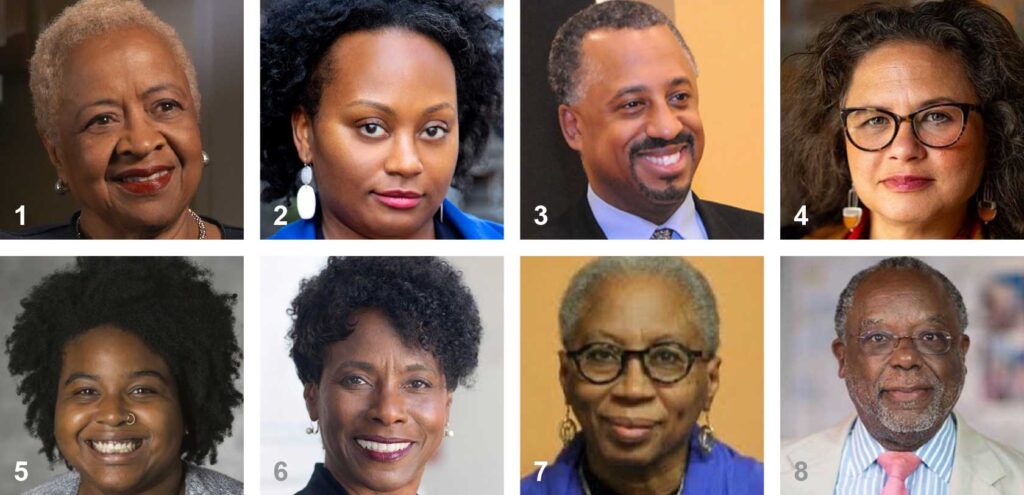
Mayor Michelle Wu took another step toward reparations this week, announcing the group of academics and history experts who will lead research efforts into Boston’s role in the transatlantic slave trade and the city’s more recent history of discrimination. The results will serve as the basis for recommendations by a reparations panel she formed last year.
Two teams, one investigating the city’s history from 1620 to 1940 and the other researching 1940 to the present, will conduct archival research to provide a report for use by the Reparations Task Force in drafting a plan to compensate Blacks for economic losses caused by slavery and its aftermath.
The announcement comes nearly one year after the appointment of the study commission and “marks the first significant step towards completing the work of the Reparations Task Force,” Wu said in a statement.
Joseph D. Feaster Jr., chair of the Reparations Task Force, said this step is a crucial part of the lengthy process to determine recompense for African Americans in Boston.
“As with anything, when you’re going to be trying to establish that there was a pattern in practice which had a dilatory effect upon a population, you have to deal with facts,” he said.
Margaret Burnham, a former judge who currently heads the Civil Rights and Restorative Justice Project at Northeastern University, will lead a team of Northeastern scholars investigating the years 1940 to the present.
She said the recommendations “have to be based on a comprehensive and accurate illumination and understanding of the history … otherwise the recommendations will be formed in a vacuum.”
Her team includes Deborah Jackson, managing director of Northeastern Law School’s Center for Law, Equity, and Race; Ted Landsmark, Northeastern University professor of public policy and urban affairs; community leader Donna Bivens; and Richard O’Bryant, director of the university’s John D. O’Bryant African American Institute.
The second team, appointed to study the years 1620 to 1940, includes Tufts University scholars and affiliates Kerri Greenidge, the Mellon associate professor in studies of race and colonialism; Kendra Field, director of the study of race and democracy and associate professor of history; and Kyera Singleton, executive director of the Royall House and Slave Quarters in Medford.
The selection of the researchers was made following a request for proposals released in September 2023 seeking partners to assist in the effort to deliver “justice for Black residents and bring equitable solutions” to Boston.
The report produced by the researchers will inform the task force’s recommendations for “reparative justice solutions,” according to the city’s website.
The city has allocated a $500,000 budget to the effort, and the two teams are expected to conclude their research and deliver a comprehensive report to the task force within one year.
Burnham said she and her colleagues will study the city’s policies and its engagement with private actors, examining the history of “educational deprivation” and investigating key infrastructures such as the police and fire departments, housing, development, and transportation.
She said their goal is to examine “the ways in which city policy disadvantaged its minority communities, its communities of color, either by malfeasance or nonfeasance or misfeasance, the ways in which city policies reinforced private segregatory and discriminatory behavior.”
Greenidge said her team is “eager to draw upon the city’s archival resources” to examine the development of slavery in the 1600s and its legacies in the early 20th century.
Field said, “All of us, as historians … we care very much about the stories of people and communities. We’re very much about situating the history of communities of African descent as deep as possible, showing the connections between individuals, families, kin networks and communities, and I imagine that that will be very much a part of this project as well.”
LEARN MORE:
Why Black businesses should receive reparations
Boston reparations task force seeks researcher
As Boston weighs a reparations commission, questions of cost and control arise






